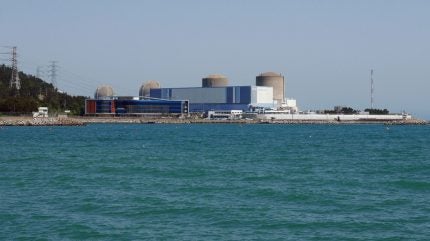
South Korea is set to embark on its inaugural nuclear power plant dismantlement project, with the Kori-1 facility scheduled for decommissioning.
The Nuclear Safety and Security Commission granted approval for this significant operation, marking a historic milestone in the nation’s energy sector.

Discover B2B Marketing That Performs
Combine business intelligence and editorial excellence to reach engaged professionals across 36 leading media platforms.
The commission sanctioned a proposal from Korea Hydro and Nuclear Power (KHNP) to dismantle Kori-1 at an estimated cost of Won1.1trn ($810m). This comprehensive 12-year project will address approximately 170,000 tonnes of nuclear waste management as part of the process.
The dismantlement is the first such operation in South Korea, which is the fifth-largest nuclear energy producer worldwide, according to the International Atomic Energy Agency.
According to Reuters, the plan submitted by KHNP met all technical requirements under national safety regulations, assuring compliance with stringent safety laws governing such operations.
Industry experts have suggested that successfully carrying out this decommissioning could enable South Korea to leverage its expertise within the burgeoning global market for nuclear plant dismantlement – a sector currently led by countries like the US, Japan and Germany.

US Tariffs are shifting - will you react or anticipate?
Don’t let policy changes catch you off guard. Stay proactive with real-time data and expert analysis.
By GlobalDataAs per recent government data, 31.7% of South Korea’s electricity was generated through nuclear processes in 2024, with a total count of 26 operational plants today. Kori-1 was initially commissioned in 1978.
Earlier this year, South Korea revised its nuclear power plans following the impeachment of President Yoon Suk Yeol, a proponent of atomic energy.
The government plans to add 3.5GW of nuclear capacity by 2038, down from the previously proposed 4.9GW, while renewable energy capacity will increase slightly to 122GW from 120GW.





